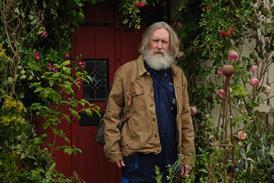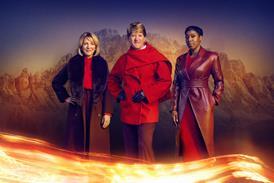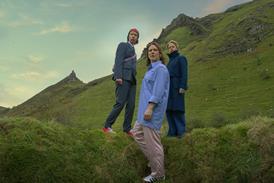Using a transmitter in Guildford, Surrey and using facilities provided by National Grid Wireless and Arqiva, the very first DTT signals using the new coding specification were pumped out last Friday (27 June).
The test follows the approval, on 26 June, of DVB-T2 by the DVB Project, the industry-led consortium that is working to create open technical standards for the delivery of digital television.
A DVB statement read: “As with DVB-T, the new standard is certain to target not just rooftop and set-top antennas, but also PCs, laptops, in-car receivers, and a whole range of other innovative receiving devices.”
DVB-T2 is an extension of the DVB-T transmission standard currently used in the UK. It is expected to deliver an increase of at least 30% in the capacity of a DTT multiplex, allowing four HD channels to be shoe-horned onto Freeview after switchover in 2012.
The new HD services will be run by public service broadcasters with one put aside for BBC HD. The other three will be available to ITV, C4, Five and S4C, which can pitch for “chunks” of capacity as part of a beauty contest.
The invitation to pitch for two of the slots was published today (3 July 2008) and applications will be submitted by mid-August.
In order to be accepted as a European standard, DVB-T2 will now enter the European Telecommunications Standards Institute standardisation process.
With approval for DVB-T2 almost complete, the next challenge will be getting enough consumer equipment ready in time for 2009, when Ofcom has said it will be possible for the first part of the UK (the Granada region) to get HD channels on Freeview.
The Digital Television Group (DTG) has argued that, because there is only a short lead-time, mass quantities of set-top box equipment will not be ready until 2010 or 2011.
However, according to the DVB, “vendors are already working on the design of DVB-T2 equipment”. The first prototypes are expected by the end of the year.
BBC Research and Innovation is also making inroads by developing a modem compliant with the new specification. Justin Mitchell, leader of the DVB-T2 modem development team at the BBC, said: “We [have] been able to deliver a key piece of technology in a short timescale. This is a big step forward.”
Ofcom has made one of the stipulations of the broadcasters' HD pitch that they must “demonstrate how to encourage manufacturers to build DVB-T2, MPEG-4 consumer reception equipment as quickly as possible, and to encourage retailers to offer them widely for sale”.


























No comments yet